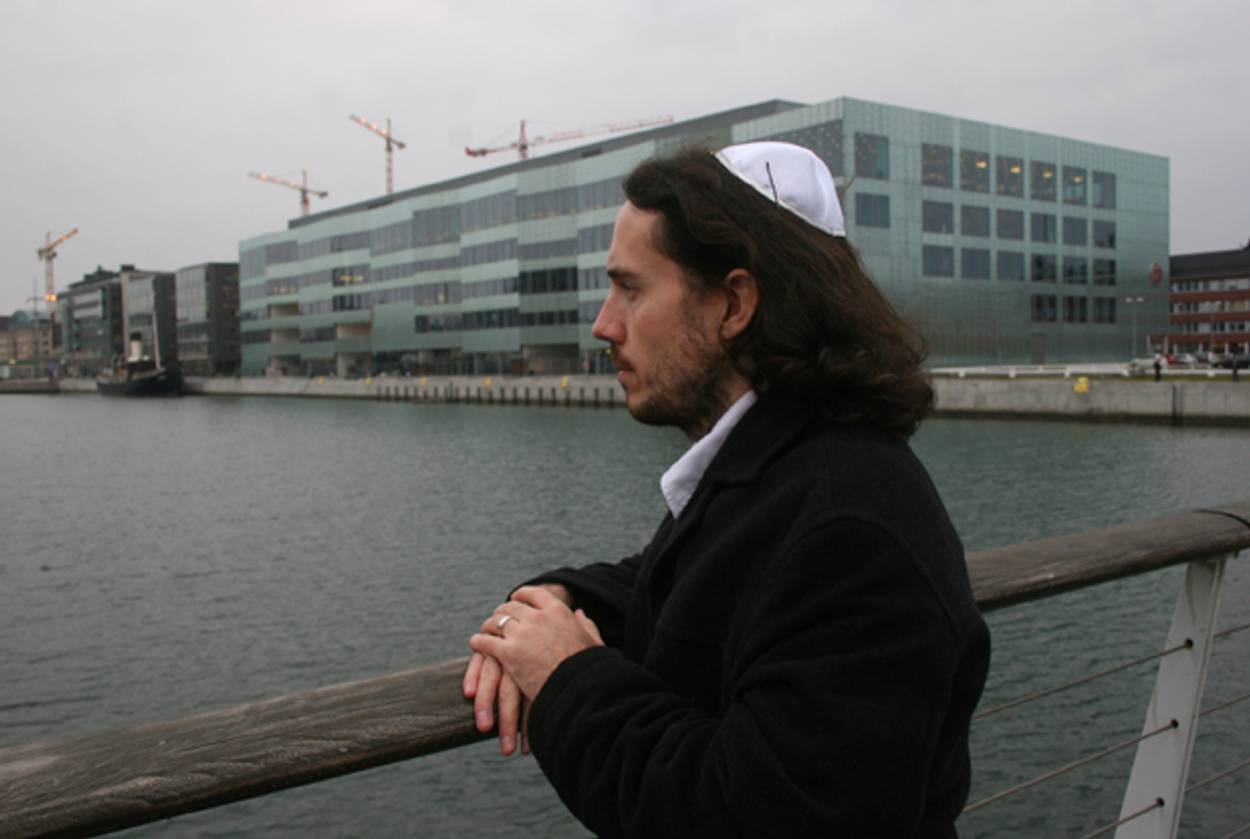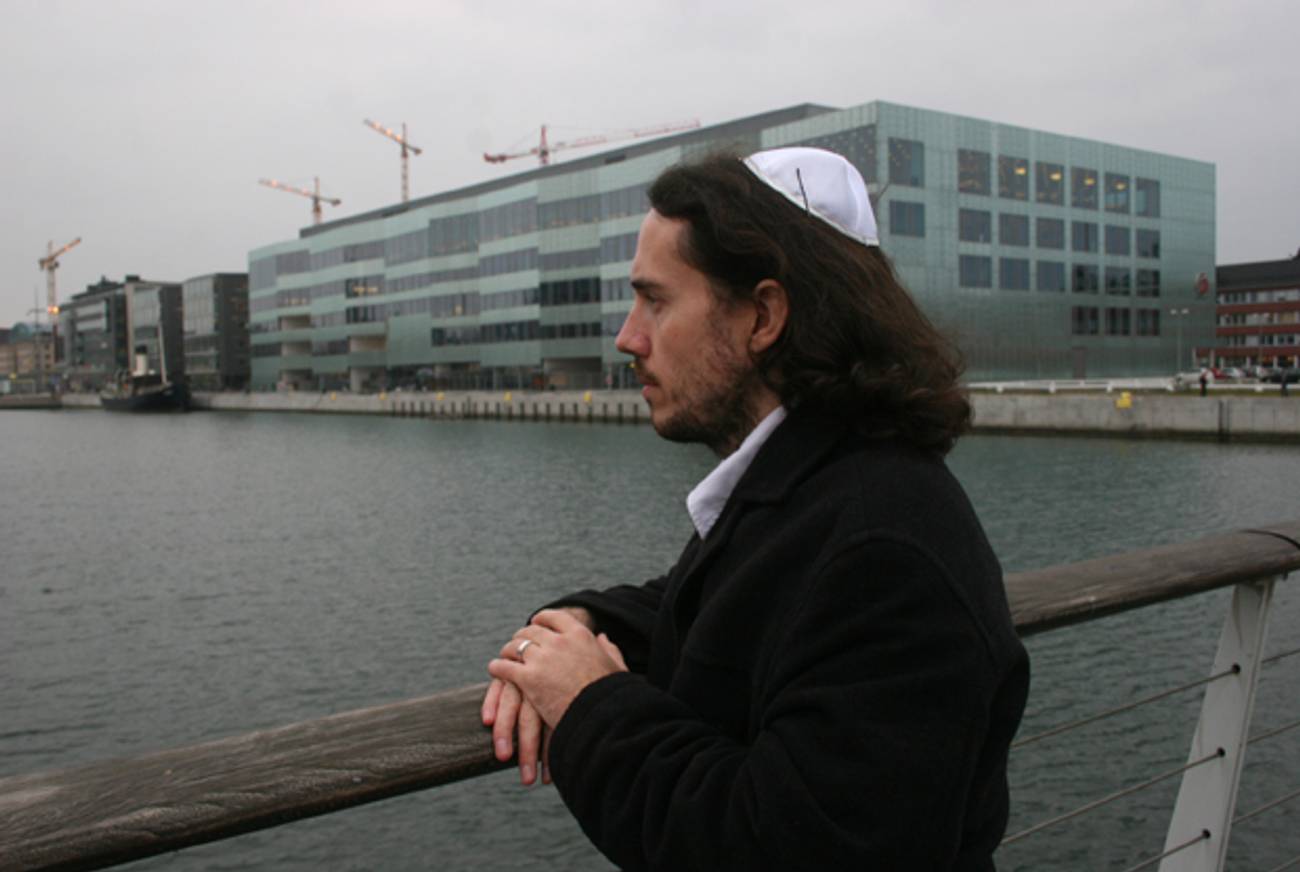Uncovering Anti-Semitism in Malmö, Sweden
Journalist Patrick Reilly wore a kippah for a day and documented the reactions




Patrick Reilly is an Irish journalist living in Malmö, Sweden. Reilly, as you might guess, isn’t Jewish, but earlier this month he decided to spend a day walking around his adopted city wearing a yarmulke. Why? Well, Malmö has a reputation for anti-Semitism and racism (the Jewish community center there was the target of an attack in September 2012, thankfully without injury) and Reilly’s newspaper, The Local, had recently received a query from a Jewish reader in the U.S. wanting to know how safe it was to visit. So, in good faith, Reilly donned a skullcap and set out to see how his townspeople would react. No violence transpired, but the mood was decidedly creepy: lots of nervous laughter, hostile looks, and intimating gestures. The story (which you can read here) generated a lot buzz on social media, and Reilly kindly agreed to share his reflections with Tablet via email.
You decided to spend a day walking around Malmö—a Swedish city with a reputation for entrenched anti-Semitism—wearing a kippah, even though you’re not Jewish. How did this assignment come about?
The idea has been in my mind since I attended a kippah walk last year, which I reported on for The Local. (The walks are held every few months to keep this issue in the public eye.) My wife reminded me of it recently, so I spoke to my editor who said to proceed, but with caution. I wanted to experience things from another side—I’m Irish and have never really been exposed to any form of discrimination, so I decided to wear the kippah in order to discover just what it is like for Jews who do this on a daily basis here.
In a 2012 articlefor Tablet, Paulina Neuding wrote that “a new form of anti-Semitism… has come to Malmö via immigrants from North Africa and the Middle East and is part of a larger, countrywide problem of failed integration.” But it seems that Swedes of all ethnicities were discomfited by the sight of you in a kippah. How would you respond to this claim?
From what I understand, anti-Semitism in its various forms has been present in Malmö for a long time. I understand what Ms Neuding means, but it is a very complex issue. One of the problems is the ghettoisation of various immigrant groups into the suburbs of Malmö, so inevitably, divisions occur. Sweden has been blamed for not integrating new arrivals, and that is plainly obvious when you go to places like Kroksbäck or Rosengård, which are well known for friction between different nationalities.
Malmö is very close to Denmark, just 20 minutes by train, and there they have similar issues. A recent article in the Copenhagen Post (“Danes: We are too tolerant of Muslims”) pointed out that just 27 percent of Danes have a Muslim in their social network, implying that the suspicion of Muslims results from a lack of familiarity. I would imagine that figure is probably lower in Sweden, which has led to the rise of far right parties like the Swedish Democrats, who preach an anti-immigrant message.
I was struck by the creepiness of people’s reactions to your kippah—they laughed and giggled as though you were wearing a ridiculous costume. Open hostility, though more disturbing, is easier to understand. Why do you think people reacted that way?
It was probably just a very unusual spectacle, to see somebody making their Jewish beliefs obvious in the part of town which happens to be my neighborhood. I know that Shmuel Goldberg [an American living in Malmö], who does wear a kippah, doesn’t go to the fruit and vegetable market as I do on a regular basis. I was a novelty.
A recent survey says 50 percent of Swedish Jews are afraid to openly identify as Jewish. Do you think Sweden is more anti-Semitic than other European countries? Are Swedes in denial about racism generally?
I wouldn’t say it is a more anti-Semitic country at all. Swedes are in general very politically correct and don’t like to offend people. As a result, any form of discrimination—whether it is against a Jew, a Muslim or an asylum seeker from Kosovo—is picked up by the media to a greater extent than perhaps it is in other countries. It is reported more, so that gives a false impression (in my view) that the country has a major problem with anti-Semitism.
What can be done to change the situation?
It’s important to point out that things are being done. The new mayor of Malmö, Katrin Stjernfeldt Jammeh, has promised to get tough on hate crime, and there is much greater awareness of anti-Semitism because of the kippah walks and media coverage. Having interviewed her I believe she is sincere in this conviction, and has shown in the past she is not afraid to speak out.
Also, a young Malmö Muslim, Siavosh Derakhti, recently won the Raoul Wallenberg Prize for his work campaigning against anti-Semitism. That indicates that things are certainly not as bad as is sometimes portrayed across the Atlantic.
Has your experience affected your feelings about living in the city?
I’ve lived in Malmö for two years and there have been lots of violent crimes during that time, but I’d never felt scared until I put on the kippah. I certainly have a much greater respect for people like Shmuel Goldberg and the local rabbi, Shneur Kesselman, who make their beliefs obvious, as they get the type of treatment I received for half a day every day. To be honest, it’s not something I would want to do again.
How did The Local respond to that email from the would-be American Jewish tourist? What was your advice?
When we got the original email, my editor rang me to say we needed to do something about it, as it made him sad. After the article was published, I emailed the reader who said he enjoyed the piece and added that my experience went exactly as he predicted. He also said that if he does visit Sweden, he won’t make his Jewish beliefs obvious. He’s also promised to buy me a steak dinner!
You can follow Reilly on Twitter at @pyttipaddy
Related: Sweden’s ‘Damn Jew’ Problem
Previous: Malmö Syndrome
Elissa Goldstein is Tablet’s director of audience development. She also produces Unorthodox. Follow her on Twitter here.